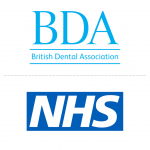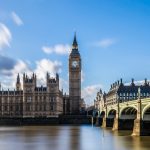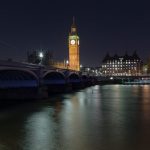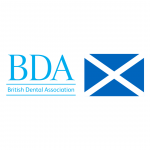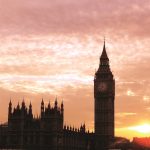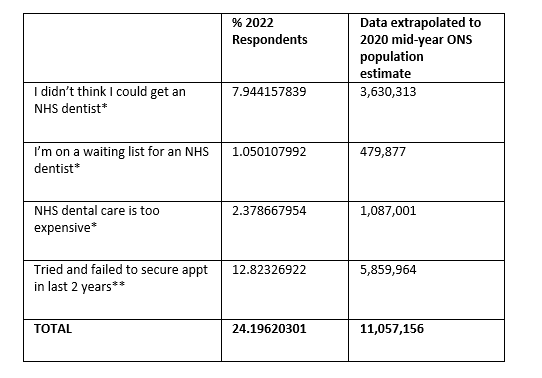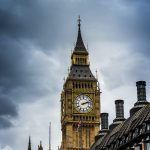The British Dental Association has urged government to drop any pretence that NHS dentistry is on the road to recovery and finally deliver a meaningful rescue package, as the exodus from the service reaches new heights.
Freedom of information requests undertaken by the BDA indicate just 23,577 dentists performed NHS work in the 2022/23 financial year, down 695 on the previous year, and over 1,100 down on numbers pre-pandemic. The crash brings the workforce to levels not seen since 2012/13. [1]
These official figures are at odds with repeat claims from the Prime Minister that recent reforms have boosted dentist numbers [2], arguments also made by ministers and officials in evidence to the current Health and Social Care Committee inquiry into the crisis in NHS dentistry. [3] The BDA understands several MPs have already sought corrections to the official record, and there are now at least 7 instances where they have a basis to proceed.
The PM has stated time and again that 500 additional dentists recorded as delivering NHS work in the 2021/22 financial year reflect the success of recent government reforms. The minor tweaks to the discredited contract fuelling the current crisis were rolled out in October 2022, so do not even correspond to the year the PM chose to cite. The BDA believes that any ‘bounce’ in 2021/22 likely reflects the unique circumstances from the first year of COVID in which practices were closed from lockdown to June.
The professional body stresses that recent commitments to develop a ‘recovery plan’ for dentistry were made by government based on false assumptions that the workforce had ‘turned a corner’. It says there can be no more tinkering at the margins, and real commitment is now required to form the basis of a rescue package, simply to stabilise the service ahead of longer-term negotiations on wholesale reform.
The BDA believes that the clearest way forward is to utilise record-breaking ‘underspends’ in the dental budget to bring a degree of sustainability to practices on the brink. The BDA estimated in February that funds returned by practices not hitting their contractual targets would likely exceed £400m this year, or over 10% of the total NHS budget. The BDA now believe this was a very conservative estimate. Practices face huge financial penalties often as a result of being unable to fill vacancies.
The BDA says a new higher minimum Unit of Dental Activity (UDA) value could bring all practices in line with areas with the strongest access levels, give them the chance to fill vacancies, support retention and operate more sustainably in the face of soaring costs. The BDA stress any costs could be kept within the anticipated levels of clawback for 2022/23. A minimum UDA level of £23 was rolled out in October, lower than the current patient charge level of £25.80, and below the level required for most practices to cover their costs or attract new dentists.
In August the PM pledged a Five-Point Plan for dentistry, including commitments to ring fence NHS dentistry funding. [4] The BDA’s approach builds on this, and echoes observations made by Broadland’s Jerome Mayhew MP, who in a recent debate urged members to “follow the money”, noting that the best areas for access “spend nearly £80 per mouth per year on dentistry; in the East of England, the figure is £39—a full 50% less.”
The BDA stresses the fall in workforce numbers significantly understates the full scale of lost capacity within NHS dentistry. The government counts heads not NHS commitment. A recent BDA survey of dentists in England revealed over half of dentists (50.3%) had reduced the proportion of NHS work they did since the start of the pandemic – by more than a quarter. 74% indicated they plan to reduce – or further reduce – the amount of NHS work they undertake in the year ahead. [5]
Shawn Charlwood, Chair of the British Dental Association’s General Dental Practice Committee said: “Government needs to drop the spin, accept the facts, and provide a rescue package to keep this service afloat. “NHS dentistry is haemorrhaging talent, and further tweaks to a broken system will not stem the flow.
“The PM once called for this budget to be ring fenced. We face an access crisis, and with hundreds of millions set to be pulled away, funds must be put to work solving these problems. Ministers have a choice. They can help thousands of struggling practices fill vacancies and see patients, or just pass by on the other side.”
References:
[1] Number of dentists with NHS activity,
Data for 2011-12 to 2021-22 from NHS Dental Statistics. *Data for 2022/23 financial year from Freedom of Information request from NHS Business Services Authority. This is expected to form part of NHS Dental Statistics 2022/23 due this coming August.
[2] Comments from the Prime Minister, Rt Hon Rishi Sunak MP
The British Dental Association had disputed wholly misleading claims on workforce numbers, funding and reform made since the start of the year. Even setting aside underspends of over £400m, the £3bn dental budget has remained almost unchanged for a decade, failing to keep pace with inflation and population growth, with patient charges forming an ever-greater share of total spend in the run up to COVID. The marginal changes to the NHS contract rolled out in November change none of the fundamental perversities of the target-based system. Dentists used to be paid the same whether they did 1 filling or 10. Now they are paid the same for 3 fillings or 10.
Wednesday 11 January 2023
Cat Smith (Lancaster and Fleetwood) (Lab)
There are no NHS dentists taking on patients in Lancaster and Fleetwood, and those constituents of mine who are lucky enough to have one are waiting months for an appointment. How long did the Prime Minister have to wait for his last NHS dentist appointment?
Prime Minister
As a result of the new reformed NHS dentistry contract, there are now more NHS dentists across the UK, with more funding, making sure that people can get the treatment they need.
Simon Lightwood (Wakefield) (Lab/Co-op)
Less than half of Wakefield’s children managed to see an NHS dentist last year. My constituent Mr Faqirzai’s six-year-old daughter has never seen an NHS dentist. She has 10 teeth that are black with decay and is often crying in pain. Her father feels helpless. He has called every dentist in Wakefield for a place but has not managed to secure one. More than 25% of five-year-olds in Wakefield already have visible tooth decay, so when will the Prime Minister stop dithering and take action to address our national dental emergency? (902917)
The Prime Minister
I am very sorry to hear about the case raised by the hon. Gentleman, and I am happy to look into that specific one more closely. As I said in answer to an earlier question, we have recently reformed the NHS dentistry contract, and the hundreds of millions of pounds more funding and more dentists should make a difference around the country, but I will write to him on that specific case.
Wednesday 8 March 2023
Mr Richard Bacon (South Norfolk) (Con)
The adjustments to the dental contract last November were a welcome step, but there is more work to do. Will the Prime Minister therefore keep this area under the closest review to ensure that constituents such as mine in South Norfolk and those of other hon. Members get the best possible dental care?
The Prime Minister
My hon. Friend raises an excellent point. I can tell him that we are continuing to invest in NHS dentistry, with £3 billion a year, and we have also enabled practices to do 10% more activity on top of their contracts and removed the barriers so that hygienists and other therapists can continue to work to their full skillset. The number of NHS dentists has increased by about 500 over the last year and we will continue to work with the sector to see what more we can do.
Wednesday 15 March 2023
Judith Cummins (Bradford South) (Lab)
Every child in the UK is entitled to free NHS dental treatment, but with 80% of practices not accepting children as new patients, is the Prime Minister proud of his record on our children’s dental health?
The Prime Minister
We are investing £3 billion in NHS dentistry. Because of the reforms to the contract, there will be about 10% more activity this year above contracted levels. There are 500 more dentists in the NHS today and, I think, almost a 45% increase in the amount of dental care being provided to children.
Wednesday 19 April 2023
Ed Davey (Kingston and Surbiton) (LD)
Tooth decay is the No. 1 reason that children over the age of four end up in hospital. Regular dental check-ups could prevent it, but too many parents cannot get one for their child. In the East Riding of Yorkshire, there are now almost 3,000 people per NHS dentist. In places such as Herefordshire and Norfolk, fewer than two in five children have been seen by a dentist in the past year. This is a scandal, so will the Prime Minister take up the Liberal Democrat plan to end this crisis and make sure people can get an NHS dentist when they need one? The Prime Minister The NHS recently reformed dentistry contracts, which will improve access for patients. Dentistry receives about £3 billion a year, and there were around 500 more dentists delivering care in the NHS last year than in the previous year. I am pleased to say that almost 45% more children saw an NHS dentist last year compared with the year before.
Wednesday 3 May 2023
Mary Kelly Foy (City of Durham) (Lab)
Unable to secure an NHS dental appointment, my constituent Ray was forced to go private. It was then discovered that he had a large, aggressive tumour in his face and jaw, and 16 hours of gruelling surgery was required to remove it. If he had not been able to afford it, Ray might not be with us now. This is yet another chapter in the horror story that is the decay of dentistry on this Government’s watch, so does the Prime Minister accept that NHS dentistry is in crisis, and will he meet me and the British Dental Association to ensure that no one loses their life because they could not get a dental appointment—yes or no?
The Prime Minister
I am sorry to hear what happened to the hon. Lady’s constituent. That is why the NHS has recently reformed dental contracts to improve access. We now invest more than £3 billion a year, and there are more than 500 more dentists working in the NHS this year than last year. Discussions are ongoing between the Department of Health and Social Care and the NHS around dentistry, and DHSC is planning to outline further reform measures in the near future.
Wednesday 10 May 2023
Clive Lewis (Norwich South) (Lab)
Two years ago, I raised the case of a Norwich Army veteran who was in such agony that he was forced to pull out 18 of his own teeth because he could not get access to a dentist. The grim fact is that despite repeated promises from the Prime Minister, Norwich and Norfolk remain dental deserts. Dentists excel at extracting rotten teeth, so does the Prime Minister agree that the only way my constituents will see results is when this rotten Government are extracted from office and replaced with a Labour one?
The Prime Minister
I am very sorry to hear about the hon. Gentleman’s constituent. The hon. Gentleman will know that there are record sums going into dentistry and indeed 500 more NHS dentists working today. Because of the contract reforms that we have put in place, 10% more activity can happen, and the Department of Health and Social Care is currently talking about reforming the dentistry contract with dental practices to increase activity further.
[3] Comments from Neil O’Brien, Parliamentary Under-Secretary of State for Primary Care and Public Health at Department of Health and Social Care
25 April 2023. This evidence was made after the end of the 2022/23 financial year in which collapse of workforce numbers took place.
To Health and Social Care Committee inquiry into NHS dentistry
Neil O’Brien: There are about 6.5% more dentists doing NHS work than in 2010; about 2.3% more than last year. We know that the number of people seen is up by about one fifth on the year to March, compared with the year before. There are not a fifth more dentists than there were a year ago, but they are doing more NHS work. Because of the nature of NHS dentistry, dentists are constantly able to choose between doing NHS work and the kind of Instagram dentistry that the CDO just talked about. We need to make NHS work attractive in that context. That is about contracts, about how much people are paid, and about fair payment.
[4] 18 August 2022, Statement ‘Restoring NHS dentistry’.
“Rishi will strengthen the protections around the annual NHS dentistry budget (approximately £3bn per annum), to ensure it is maintained exclusively for frontline dental services. As part of this ring-fencing exercise, commissioners in rural areas will be required to demonstrate how they are securing provisions for communities who do not live close to a dentist, including exploring mobile clinics and delivering services at alternative sites.”
Rishi Sunak said: “NHS dentistry is under unprecedented pressure with people unable to get the treatment they need, leaving them in pain or forced to fork out thousands for private care.
“My five-point plan will be activated on day one to free up dentistry professionals to do their jobs, encourage NHS trained dentists to stay in the NHS, and focus on prevention as that is always better than the cure.
“As Prime Minister, I’ll be focused on getting the British people more bang for our buck from our NHS.”
[5] BDA survey of 1,921 General Dental Practitioners in England, fieldwork December-January 2023




